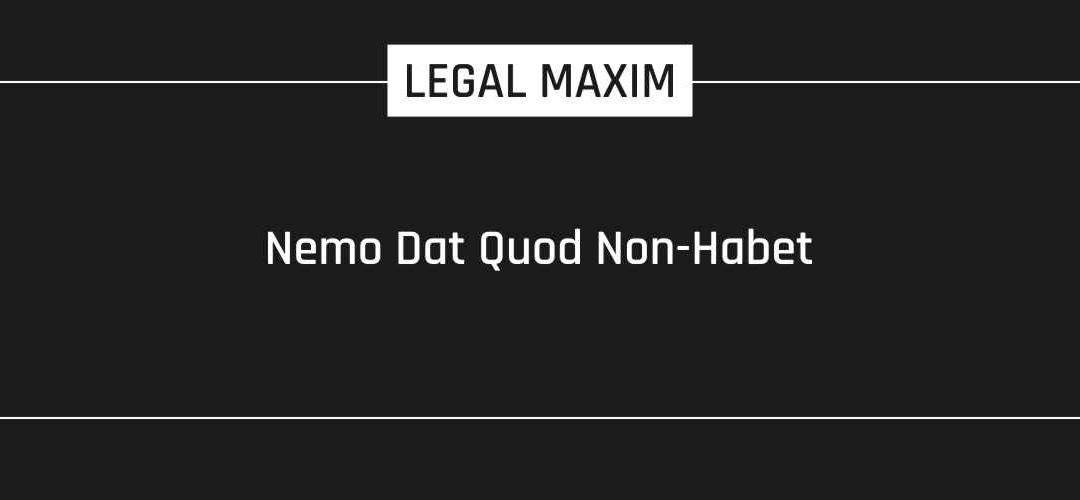Literal Meaning
No one gives what he doesn’t have.
Origin
Latin
Explanation
The maxim is a legal rule and a ground principle regarding the transfer of title. It refers to the question of whether someone purporting to give or sell a property has legal title or right to do so. The sale of goods usually takes place between the buyer and seller. However, there are some exceptions in which the seller sells the goods which are not authorized to him or without the permission of the owner. Thus, in such cases Nemo dat quod non-habet the rule comes into existence to help decide which of the innocent parties to be favored buyer or owner.
Section 27 of the Sale of Goods Act, 1930 states that when any goods are sold by a person who is not the real owner of the goods and sells them without proper authority and consent from the real owner, the buyer acquires no better title to the goods than the seller had. Further, Section 27 also provides an exception to the rule, which protects the interest of the real owner.
Illustration
A transfers his property to B. Further, A transfers the same property to C. Following the rule of Nemo dat quod non-habet, B will get the right from A. Thus, currently, B has the rights and A has none. So, A cannot transfer the property to C. The current owner should be able to trace his rights back in time to prove his legitimate acquisition.
Case Laws
In Nitin Gupta vs. State of Meghalaya and others, Supreme Court has set aside the release of the stolen vehicle to the buyer on the principle of Nemo dat quod non-habet.
In V.Chandrasekaran & Anr vs Administrative Officer & Ors, the Supreme Court held that the general rule of law is undoubted, that no one can transfer a better title than he himself possesses; Nemo dat quod non-habet. However, the transfer must be in good faith for value, and there must be no misrepresentation or fraud, which would render the transactions as void and also that the property is purchased after taking reasonable care to ascertain that the transferee has the requisite power to transfer the said land, and finally that, the parties have acted in good faith.
In the Morvi Mercantile Bank Ltd. And vs. Union of India, the Supreme Court held that the general rule is expressed by the maxim Nemo dat quod non-habet, i.e., no one can convey a better title than what he had. To this maxim, to facilitate mercantile transactions, the Indian law has grafted some exceptions, in favor of bona fide pledgees by transfer of documents of title from persons, whether owners of goods or their mercantile agents who do not possess the full bundle of rights of ownership at the time the pledges are made.
